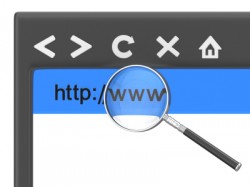While (I hope) most dealership websites won’t be affected by this, Google has recently announced they will begin penalizing websites that have too many ads at the top. It’s being called the “page layout algorithm” and affects sites that “don’t have much content ‘above-the-fold'”, according to Google’s Inside Search blog.
We’ve all clicked onto a site only to have to scroll down through the ads to actually find the content we are looking for. This algorithm change will penalize sites with little or no “non-ad” content visible above the scroll line, so that they appear less frequently and with less prominence in Google’s search results.
So how does Google tell what is an ad and what isn’t? They have a “variety of signals that algorithmically determine what type of ad or content appears above the fold, but no further details to share. It is completely algorithmic in its detection…”. Not surprisingly, Google isn’t giving many details.
Double check your landing pages, micro-sites, and any sites your auto dealer website links out to, to ensure that none are so ad-heavy that users have to scroll down to see any content. Keep in mind that the screen may appear smaller to those on an iPad or other tablet computer.
Google recommends using their Browser Size tool to see how much content and ads are visible under various screen resolutions.


